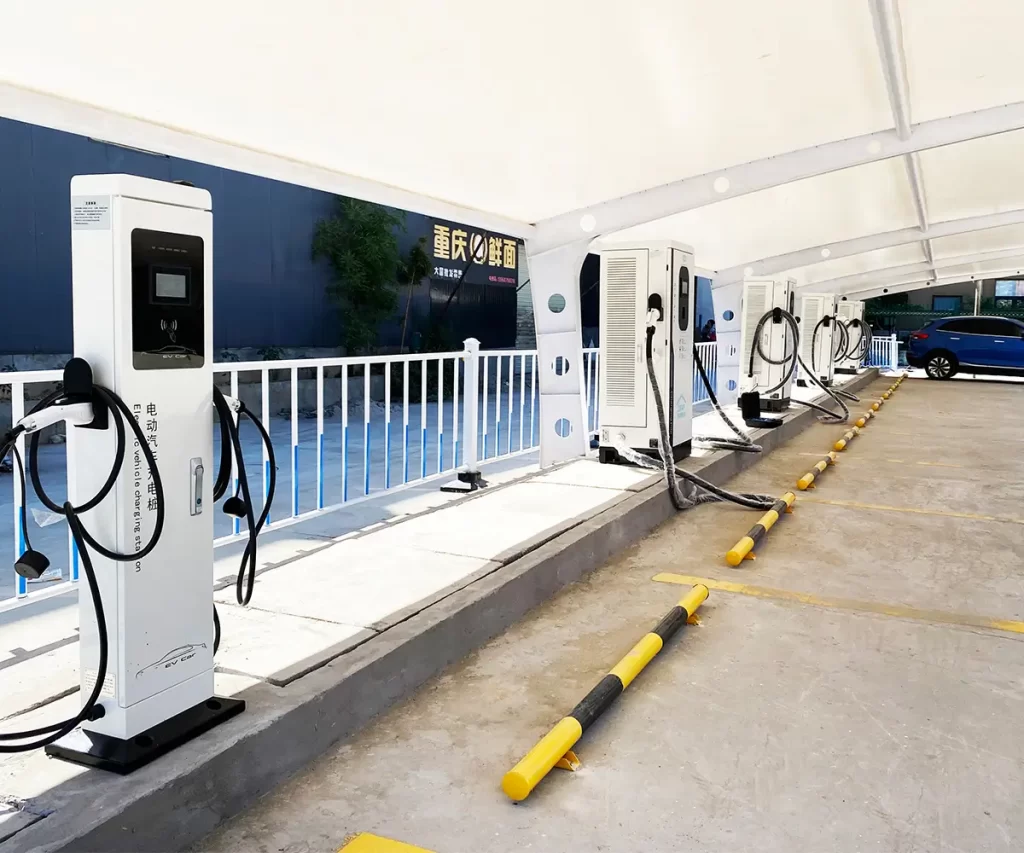Table of Contents
ToggleHow To Choose An EV Charger?
As more people look for environmentally friendly transportation options, electric vehicles, abbreviated as EVs, are becoming an increasingly popular choice. Learning how to charge an electric vehicle properly is an essential skill for anyone who owns an electric vehicle. This article will guide you through the process of selecting the most appropriate electric vehicle charger for your needs.
“In The Future, There Will Be A Greater Proportion Of Vehicles That Run On Alternative Fuels, Which Will Lead To An Increase In The Need For Charging Infrastructure.”Alex WangBYD
Understanding Ev Charging Basics
Types Of Ev Chargers
Level 1, Level 2, and DC fast chargers are the three primary varieties of electric vehicle chargers. Level 1 chargers are those that plug into a regular household outlet that operates at 120 volts and have the slowest charging speed. Level 2 chargers are the most popular option for charging electric vehicles at home since they provide a faster charge and only need a 240-volt outlet for operation. The DC fast chargers that are often found at public charging stations are the option that provides the quickest charging time.
- Level 1 EV Charger
- Level 2 EV Charger
- DC EV Charger

Charging Speed
The rate at which your vehicle may be charged varies depending on the kind of charger that is used and the capabilities of the vehicle itself. A full charge with a level 1 charger often takes more than 20 hours to complete. This is the slowest charging method. Most electric vehicles may be fully charged with a level 2 charger in four to eight hours. Depending on the kind of vehicle you have, a DC fast charger may charge up to 80 percent of the battery in as little as 30 minutes.

Factors To Consider When Choosing An Ev Charger
Your Vehicle's Charging Capabilities
The kind of charger that is compatible with your electric vehicle will be determined by its capacity for charging. In order to determine which charger is suitable for your automobile, you should consult either the owner’s manual or the vehicle manufacturer.
Charging Location And Installation
Think about the primary location where you will charge your electric vehicle. If you want to charge your device at home, you must ensure that your electrical setup is suitable for the kind of charger you intend to use. If you want to rely on public charging stations, you should become familiar with their locations and the times they are available.
Wi-fi Connectivity And Smart Features
Some electric vehicle chargers have wi-fi connectivity and smart features that enable users to remotely schedule charging, monitor energy use, and take control of charging from a distance. Think about whether or not these features are important to you and whether or not the additional cost of having them is justified.
Budget And Incentives
When looking for an electric vehicle charger, one’s budget should be a primary consideration. Chargers that are level 2 and those that include smart features are often more expensive. On the other hand, there is a possibility that your utility company, the government in your area, or the manufacturer of your charger may provide rebates and incentives.
Top Ev Charger Brands And Models
Level 1 Chargers
Your electric vehicle purchase will typically come with at least one level 1 charger. They are a practical choice to make if you don’t have access to a 240-volt outlet or if you just need occasional charging for your device.
Popular level 2 charger brands include ChargePoint, Clipper Creek, and Juicebox. These chargers provide a faster charging solution for daily use. Some popular models include:
Clippercreek hcs-40
Juicebox 40
Moreday
Each model offers different features, so research and compare to find the best fit for your needs.
The majority of Electrify America’s, Tesla’s, and ChargePoint’s DC fast chargers may be found at public charging stations. These chargers are often provided by the respective companies. Even though you probably won’t install a DC fast charger at your house, it is critical that you be aware of which charging networks are compatible with your electric vehicle for charging when you are on the move.

Choosing The Right Charger For Your Needs
Assess Your Daily Driving Needs
When deciding which charger is most suitable for you, your typical driving patterns should be taken into consideration. A level 1 charger might be all you need if your daily commute isn’t too long and you have time to plug it in at night. On the other hand, a level 2 charger is the superior choice if you often travel long distances or need your battery to be charged more quickly.
Plan For The Future
Consider the possibility that your driving requirements may evolve in the years to come. An investment in a level 2 charger can be a good idea if you expect to drive your electric vehicle more often or if you want to buy a new electric vehicle that has a larger battery capacity.
Consider Installation And Maintenance
You should also think about the requirements for the installation process and the maintenance that will be necessary. Installing a level 1 charger is the least complicated option, whereas installing a level 2 charger could require the assistance of a trained professional. Installations of DC fast chargers are often more complicated, and the associated maintenance costs are typically higher.
Evaluate Charger Compatibility
Make sure that the charger you choose is compatible with the charging port on your electric vehicle. Although the J1772 connector is standard on most EVs, an adapter is necessary for some models, like Teslas. Connectors on DC fast chargers vary depending on the kind of charging network being used, such as Chademo or CCs.
Research Local Incentives And Rebates
You may offset the cost of an electric vehicle charger by searching for incentives and rebates that are offered in your area. There are certain utility companies that provide electric vehicle charging at discounted rates, and there are local and federal programs that may provide rebates for the installation of chargers.
Conclusion
It is critical to select the appropriate electric vehicle charger if you want the charging process to be efficient and convenient. Think about the charging capabilities of your vehicle, the amount of driving you do on a daily basis, the charging locations that are available, and any incentives or rebates. You will be able to choose the ideal electric vehicle charger for your way of life with complete assurance if you familiarize yourself with the various types of chargers and take into account the requirements that are unique to you.

Derek Ke
Hey, I’m Derek Ke, the founder of Moredaydc.com, an expert in solar electrical products and ev charging.
In the past 15 years, we have helped 60 countries and nearly 500 customers (such as farms, residences, industrial and commercial) solve new energy and green power problems. This article aims to share more knowledge about solar electricity and new energy with everyone, so that green electricity can enter every home.
Common Queries
Frequently Asked Questions
A: Check your vehicle’s owner’s manual or consult the manufacturer to determine the appropriate charger type and connector for your EV.
A: Level 1 chargers can be used with a standard household outlet and typically don’t require professional installation. However, level 2 chargers often need professional installation to ensure proper electrical setup and safety.
A: Several apps and websites, such as plowshare and ChargePoint, can help you locate nearby public charging stations and provide information on charger types and availability.
A: While there may be electricity costs associated with charging your EV, some chargers offer energy monitoring features to help you track and manage energy usage. Additionally, some public charging networks require a membership or charge a fee for usage.
A: Yes, if you have a solar panel system installed at your home, you can charge your electric vehicle using solar-generated electricity, further reducing your carbon footprint and energy costs.
Make Electricity Available To All People


